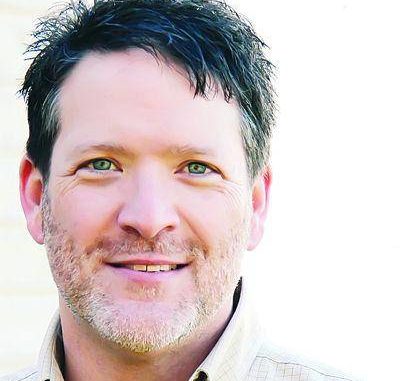
Ronnie McBrayer
Keeping the Faith
There is a way of looking at the world known by psychologists as “Locus of Control.” It can be internal or external, and affects how a person meets life’s challenges. If a person has a strong internal locus of control, he or she tends to take charge of his or her own life, actions, and decisions. “Control” might be nonexistent, powerlessness is not.
If a person has an externally oriented locus of control, he or she is more likely to see life as dominated by fate, circumstances, others, or even God’s unalterable “will.” This individual feels largely powerless to determine any outcome of life, and he or she is left to bear the burden of preordained destiny or doom.
John Sims and Duane Baumann applied this concept to their famous study about tornadoes fifty years ago. Their study determined that more people were dying in the Deep South from tornadoes than from the Midwest. Combing through the data, comparing storm strength, population densities, and warning systems, Sims and Baumann came to the conclusion that residents in the South – at the time – had a much greater external locus of control than those from the Midwest.
This meant that Southerns were far more fatalistic, especially in relation to their religion. More than 90% of those surveyed believed that God was responsible for the contorting trail of each twister, so there was nothing they could do but passively pray and hang on as the winds tore their clapboard houses to pieces. Meanwhile, those with far less fatalism – by overwhelming numbers – accepted meteorological explanations, heeded early warnings, and got out of harm’s way.
This is true: You have little control over what happens in life. Can you stop a tornado from plowing down your street? Can you single-handedly reform the political structure of our nation? Can you bring change to archaic religious organizations, centuries overdue to have their dirty laundry aired and their abuses brought to redress? Can you alone stop grift, corruption, hatefulness, and injustice? Of course not.
Yet, this statement is also true: You are the only one who can take responsibility for your life. You can listen to the weather report, consult radar, and dive into the basement before the storm arrives. You can be a better citizen, producing in a small way, a better nation. You can stick with the Golden Rule, gracefully defying the hardened religious systems that have strayed so far from their life-giving, simple origins. You can be generous, honest, loving, and fair – regardless of who others are or what others do.
Truly, you have precious little control, but you have powerful choices. Viktor Frankl, Jewish Holocaust survivor and psychiatrist, best articulated how life is lived between these seeming polarities. Reflecting upon the suffering he both witnessed and endured, he wrote, “Everything can be taken from a man but one thing: The last of human freedoms – to choose one’s attitude in any given set of circumstances.” So long as you breathe, that choice is yours.
Ronnie McBrayer is a speaker, storyteller, and spiritual navigator in the way of Jesus. He helps others heal from toxic faith; discover the peace that comes from surrender; and lead spirited, hopeful lives in the world.
"choice" - Google News
October 15, 2020 at 08:03PM
https://ift.tt/2SWwEV9
The choice is always yours - Laurinburg Exchange
"choice" - Google News
https://ift.tt/2WiOHpU
https://ift.tt/3c9nRHD
Bagikan Berita Ini














0 Response to "The choice is always yours - Laurinburg Exchange"
Post a Comment